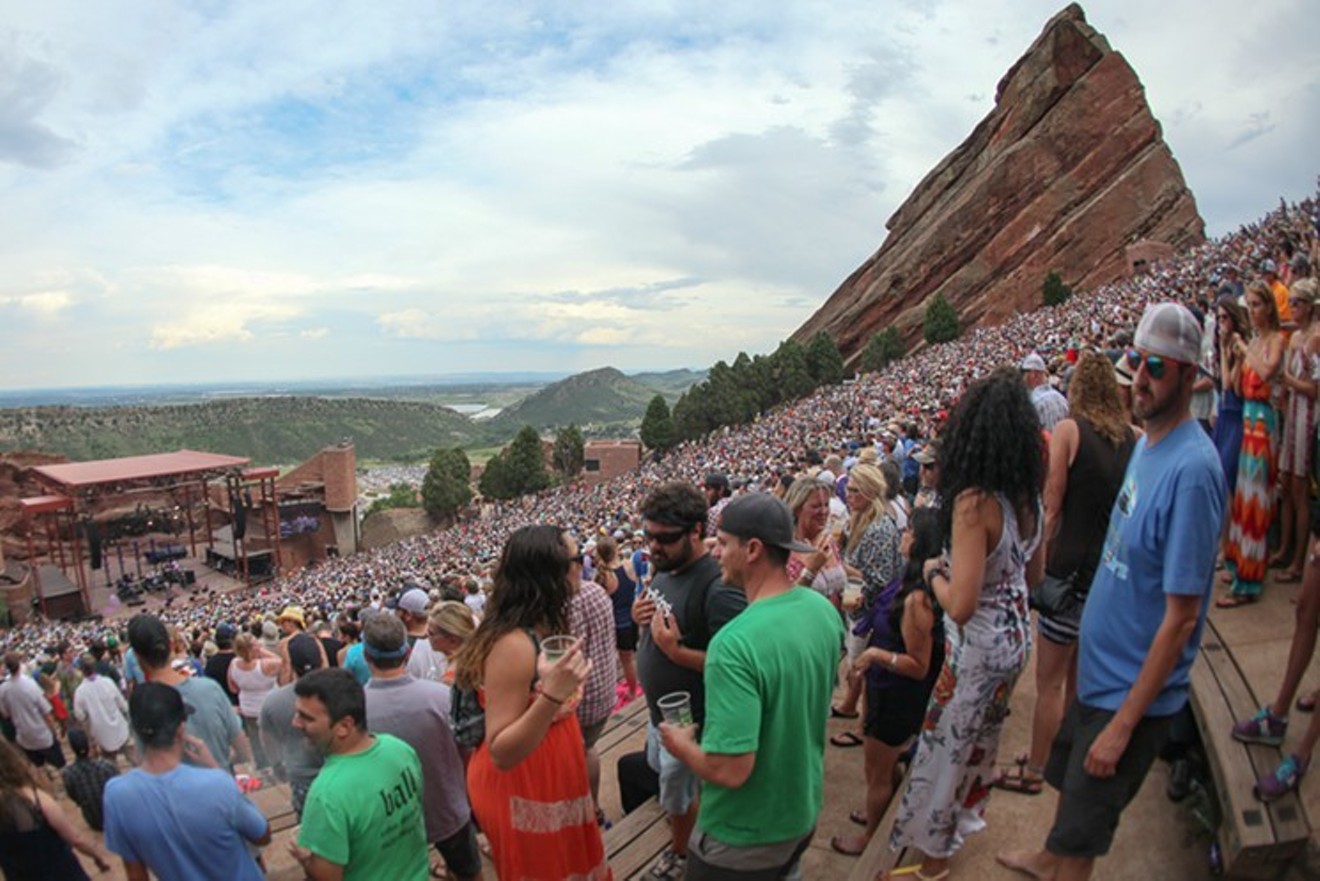Getting tickets for many Red Rocks shows can be tough, as we explored in an August 22 cover story, “Bot or Not: Who Really Gobbles Up Red Rocks Tickets?”
Those tickets can be especially elusive for fans with accessibility needs; wheelchair users have just two rows to sit in: row one and row seventy. And last December, growing frustration over wheelchair-accessible seats being swiped by ticket scalpers or able-bodied patrons led to a number of plaintiffs, including Kalyn Heffernan of the hip-hop group Wheelchair Sports Camp, to join forces with disability lawyers and file a class action lawsuit against Denver, which owns and operates Red Rocks through Denver Arts and Venues. (Heffernan described some of her personal experiences to us when that suit was filed.)
Now, both parties tell Westword that the lawsuit is close to a settlement. And as part of ongoing negotiations, Denver Arts & Venues announced this week that it will implement a new ticket-buying process beginning in February 2018 to help ensure that accessible seats at Red Rocks go to those who actually need them.
The main change will be that tickets for the first four rows of Red Rocks must be used by their original purchasers, who will be seated only upon presenting identification to venue staff.
For wheelchair-accessible seats in row one, ticket buyers will also be asked to verify their need for accessible seating at the time of purchase.
Finally, in cases when multiple tickets are purchased for any of the seats in the first four rows, all attendees must arrive with the person who actually bought the tickets; they cannot arrive at the venue separately.
According to Denver Arts & Venues, the changes are aimed at preventing scalpers from buying tickets for the first four rows and then selling them on the secondary market (oftentimes for markups of hundreds of dollars).
To assure the integrity of the process, Red Rocks will rely on a new technology that AXS (the ticketing company Denver contracts with) has rolled out called “Flash Seats.”
Flash Seats tickets are delivered digitally — so there are no paper tickets that can easily be scalped — and purchasers will create a verified Flash Seat ID that they must present proof of at Red Rocks at the time of the concert.
This can be done through the Flash Seats mobile phone app.
(And in April next year, there will be another Red Rocks mobile app that patrons can use to show venue employees their Flash Seats verification.)
In a statement, Red Rocks venue manager Tad Bowman said, “With these new procedures, we are excited to put tickets in the hands of fans who truly need these accessible seats so they can experience the magic of Red Rocks.”
Westword also reached out to one of the representing attorneys in the class action lawsuit, Alison Butler, who said that she was surprised but encouraged by the announcement.
“We appreciate that the City has listened to the concerns of our class members and is taking steps to help ensure that people with mobility impairments will have access to concerts at Red Rocks for the 2018 season,” Butler wrote in an email. “Since filing our class-action suit last year, we have remained in constant and ongoing negotiations with the City, and we are optimistic that these will result in a settlement that addresses all of our class members’ concerns.”
[
{
"name": "Air - MediumRectangle - Inline Content - Mobile Display Size",
"component": "12017618",
"insertPoint": "2",
"requiredCountToDisplay": "2"
},{
"name": "Editor Picks",
"component": "17242653",
"insertPoint": "4",
"requiredCountToDisplay": "1"
},{
"name": "Inline Links",
"component": "18838239",
"insertPoint": "8th",
"startingPoint": 8,
"requiredCountToDisplay": "7",
"maxInsertions": 25
},{
"name": "Air - MediumRectangle - Combo - Inline Content",
"component": "17261320",
"insertPoint": "8th",
"startingPoint": 8,
"requiredCountToDisplay": "7",
"maxInsertions": 25
},{
"name": "Inline Links",
"component": "18838239",
"insertPoint": "8th",
"startingPoint": 12,
"requiredCountToDisplay": "11",
"maxInsertions": 25
},{
"name": "Air - Leaderboard Tower - Combo - Inline Content",
"component": "17261321",
"insertPoint": "8th",
"startingPoint": 12,
"requiredCountToDisplay": "11",
"maxInsertions": 25
}
]













